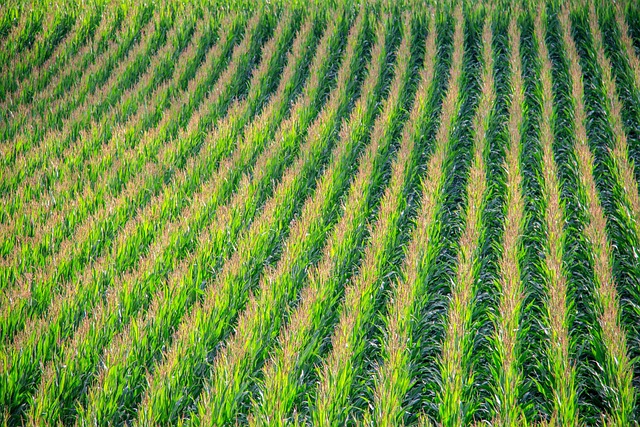Soil Conditioners for Plant Growth

Soil health is the foundation of productive agriculture, and maintaining its fertility is crucial for sustainable crop growth. Soil conditioners play a vital role in enhancing soil structure, nutrient availability, and overall plant health. Unlike chemical fertilizers that provide only specific nutrients, soil conditioners improve the physical and biological properties of the soil, creating an environment where plants can thrive naturally. By increasing soil porosity, moisture retention, and aeration, these conditioners ensure that plant roots receive the essential nutrients and water needed for optimal growth.
One of the significant benefits of soil conditioners is their ability to restore degraded soils. Over time, intensive farming, erosion, and improper irrigation can lead to compacted or nutrient-deficient soils, limiting crop productivity. Soil conditioners, such as organic compost, biochar, and gypsum, help reverse these issues by improving soil texture and promoting microbial activity. Enhanced microbial activity, in turn, accelerates the decomposition of organic matter, releasing nutrients in forms that plants can readily absorb.
Moreover, the use of soil conditioners reduces dependency on chemical inputs, making agriculture more sustainable and environmentally friendly. By improving nutrient uptake, water efficiency, and root development, they contribute directly to higher crop yields and healthier plants. For farmers and gardeners alike, incorporating soil conditioners into routine soil management practices is a practical and effective strategy to maximize productivity while preserving soil health for the long term.
Benefits of Using Soil Conditioners
- Improved Soil Structure
One of the primary advantages of soil conditioners is their ability to enhance soil structure. They reduce soil compaction, increase aeration, and promote better root penetration. Well-structured soil allows roots to access oxygen, water, and nutrients more efficiently, directly supporting plant growth and overall productivity. - Enhanced Nutrient Availability
Soil conditioners not only improve the physical properties of the soil but also enhance nutrient availability. Organic conditioners, such as compost and manure, release essential nutrients slowly, ensuring a steady supply for plants. This improves nutrient absorption and reduces the risk of nutrient leaching, which can occur in chemically treated soils. - Increased Water Retention
Proper moisture retention is critical for healthy plant growth. Soil conditioners improve the soil’s ability to hold water, especially in sandy or degraded soils. This reduces the frequency of irrigation, conserves water, and helps plants withstand periods of drought or irregular rainfall. - Promotion of Microbial Activity
Healthy soil contains a diverse community of beneficial microbes. Soil conditioners, particularly organic ones, act as a food source for these microorganisms. Increased microbial activity enhances the breakdown of organic matter, releasing nutrients in plant-accessible forms and improving soil fertility naturally.
Types of Soil Conditioners
- Organic Soil Conditioners
These include compost, manure, biochar, and green manures. They are environmentally friendly and improve soil fertility while promoting sustainable agriculture. - Inorganic Soil Conditioners
Gypsum, lime, and certain mineral additives fall under this category. They are primarily used to correct soil pH, reduce salinity, or improve clay-heavy soils for better crop growth.
How to Apply Soil Conditioners Effectively
For maximum results, it is important to apply soil conditioners according to soil type and crop requirements. Mixing them thoroughly into the soil ensures even distribution, improves soil texture, and optimizes nutrient absorption. Regular application over time gradually restores soil health and increases productivity.
Conclusion
Maintaining healthy soil is the cornerstone of productive and sustainable agriculture, and soil conditioners play a crucial role in achieving this goal. By improving soil structure, enhancing nutrient availability, and increasing water retention, these conditioners create an optimal environment for plant growth. The benefits extend beyond individual crops, as they help restore degraded soils, promote microbial activity, and reduce reliance on chemical fertilizers. Over time, consistent use of soil conditioners leads to healthier plants, higher yields, and more resilient agricultural systems.
Whether you are a professional farmer or a home gardener, incorporating soil conditioners into your soil management practices ensures long-term productivity and soil sustainability. Organic options such as compost, manure, and biochar enrich the soil naturally, while inorganic conditioners like gypsum and lime address specific soil deficiencies, such as pH imbalances or clay compaction. The careful selection and application of soil conditioners, tailored to the unique needs of your soil and crops, can transform unproductive land into fertile, thriving gardens and fields.
For those seeking reliable solutions to improve soil health and maximize crop output, choosing high-quality soil conditioners is essential. At Indochem Agrovet, we provide a wide range of effective soil conditioners designed to enrich your soil, boost plant growth, and enhance overall productivity. Take the first step towards healthier, more fertile soil today and witness the remarkable difference in your plants’ growth and vitality.
Contact us now to explore our premium soil conditioners and expert guidance:
https://indochemagrovet.in
📞 +91 9830 720311 / 83369-77770
Mumbai: Parewala House No.4, Vakola, Santacruz (East), 400055
Kolkata: Block-DD, House No-197, 1st Floor, Street No-295, Action Area-1, New Town, 700156

